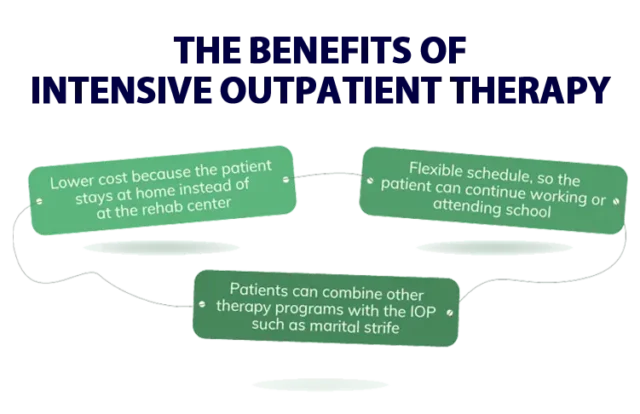Depression is powerful and can impact every aspect of life. There’s hope at the Village Wellness Center in Silver Spring, Maryland, and intensive outpatient depression counseling is key. Now we will discuss intensive outpatient therapy for depression and its importance in mental health.
Millions of people around the world are depressed. It can be terrible for people, their families, and their organizations. The first and most important step to feeling better from sadness is to get help from a trusted organization.
Understanding Intensive Outpatient Therapy
Intensive outpatient therapy for depression helps depressed people recover their lives. Unlike inpatient treatment, IOP lets patients attend daytime or evening therapy sessions at home.
Flexibility distinguishes IOP. It bridges the gap between inpatient, where patients dwell, and outpatient, which entails weekly sessions. IOP is ideal for people who require extensive treatment yet wish to work, study, or take care of family.
The benefits of IOP are numerous. The secure and friendly establishment allows people to develop coping strategies, get treatment, and interact with others facing similar issues. The flexibility of IOP allows for a slower return to regular life, minimizing relapse risk.
When Intensive Outpatient Therapy Recommended?
Intensive outpatient treatment is recommended when the situation calls for it. It works for many people, but not all of them. IOP is recommended, such as:
- When severe depression does not require 24/7 care.
- After inpatient therapy, patients transfer to less intensive care.
- When people need intense help yet want to stay at home and work.
- Mental health care requires individual and group counseling, pharmaceutical management, and holistic treatments.
IOP may treat major depressive disorder, persistent depressive disorder (previously dysthymia), and bipolar disorder.
Things That Make Up Intensive Outpatient Therapy
Each person receives customized intensive outpatient therapy. The main components are usually:
-
Individual Therapy
Individual therapy with a licensed therapist to treat depression and enhance coping skills.
-
Group Therapy
Empathetic, helpful sessions for sharing experiences, problems, and accomplishments.
-
Management of Medication
A psychiatrist or psychiatric nurse practitioner monitors and adjusts medication as required.
-
Holistic Approaches
IOPs may use mindfulness, meditation, dietary counseling, and physical exercise to increase well-being.
Individualized treatment strategies define IOP. Each person’s requirements and obstacles are addressed, guaranteeing a thorough and effective rehabilitation.

The Benefits of Intensive Outpatient Therapy
Intensive outpatient treatment for depression has many benefits:
Flexibility: IOP is more accessible and less disruptive than inpatient therapy since patients may maintain their regular activities.
Comprehensive Care: It integrates counseling, medication management, and holistic approaches to mental health.
Supportive Community: IOP reduces loneliness by providing a sense of community with people going through similar problems.
Skill Building: Participants acquire depression management and relapse prevention methods
Gradual Transition: It eases the transition from formal therapy to independent life, lowering recurrence.
What to Expect During Intensive Outpatient Therapy
Depressed patients get individual and group counseling in intensive outpatient therapy (IOP). Expect these on your IOP journey:
Therapy Sessions
IOP sessions occur numerous times a week for sustained support and improvement. Individual counseling lets you confidently work with a therapist on your specific issues. Group therapy provides camaraderie and the chance to learn from others.
Structured Schedule
IOP programs may include morning or evening sessions, allowing you to manage treatment with job, school, and family.
Treatment length
IOP length depends on patient demands and development. The program may last weeks or months for some participants. Provide enough assistance for long-term healing. Many IOP programs include mindfulness meditation, yoga, dietary counseling, physical exercise, and standard therapy. These supplementary practices boost well-being and mental health.
Conclusion
Intensive outpatient therapy for depression gives hope, flexibility, and complete support for those struggling with depression. Remember these crucial points:
- IOP offers systematic, balanced, and holistic therapy.
- The therapy team can address common concerns and myths.
- Making the initial step into IOP is brave but can lead to sustained recovery.
If you or someone you know is depressed, get assistance. Start your healing and wellness journey with the Village Wellness Centre now. Our caring team is with you every step of the way.
Read More: Self Care for Anxiety Disorder: Finding Peace at the Village Wellness Center
FAQS
What Is The Average Length Of Intensive Outpatient Therapy For Depression?
Intensive outpatient therapy time depends on demands and success. Some engage for weeks, others for months. Provide enough assistance for long-term healing.
How Does Intensive Outpatient Depression Treatment Vary From Inpatient?
Intensive outpatient therapy for depression lets patients stay home and continue their routines while attending several weekly sessions. Inpatient therapy requires 24/7 hospitalization. IOP is for persons who require extensive assistance yet want to work, study, or be with family.
What Therapies Are Common in Depression Intensive Outpatient Programs?
Intensive outpatient therapy for depression frequently includes individual and group therapy. Individual therapy is one-on-one counseling, whereas group therapy is a supportive setting for sharing and learning.
Does Intensive Outpatient Therapy Work For Major Depressive Disorder And Bipolar Disorder?
Yes, intensive outpatient treatment can treat major depressive disorder, persistent depressive disorder (previously dysthymia), and bipolar disorder.
How Do I Or A Loved One Start Rigorous Outpatient Depression Therapy?
Asking for help starts the process. Reach out to local mental health services or the Village Wellness Centre. After an initial examination to identify the best degree of treatment for your condition, our staff will help you through insurance coverage and financial arrangements.





